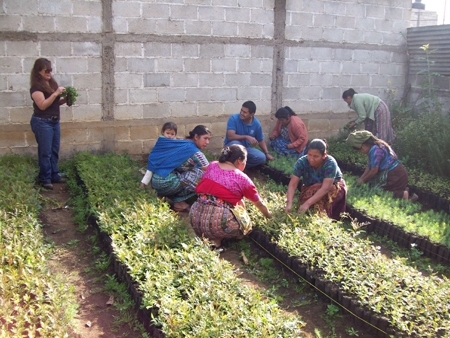UNFCCC’s “Women for Results”
Reducing greenhouse gas emissions and supporting household economies by empowering women in developing countries

Sequester carbon and secure food resources for the village by teaching South African women to plant trees. Train Ghana women to make bamboo bicycles to reap double-barreled climate benefits: protect the environment and create jobs by promoting eco-friendly transportation sector. Protect the forests as well as the residents’ health by building efficient brick stoves with chimneys.
As the 19th session of the Conference of the Parties (COP-19) to the United Nations Framework Convention on Climate Change (UNFCCC) meets in Warsaw, Poland from November 11 to 22, the details of 2013 “Women for Results” initiated by UN Center for Climate Change have been unveiled. “Women for Results” is a part of “Momentum for Change Initiative,” a major project of UN Center for Climate Change to provide benefit for women in developing countries, who conduct activities to mitigate climate change. It aims to promote global sustainable growth by training women to take part in various activities to reduce greenhouse gas emissions and reap economic and social benefits through such activities.

“Through this project, women have begun to use their imaginations and their entrepreneurial skills to address many of the issue of the impact of climate change,” said Christiana Figueres, the Executive Secretary of the UNFCCC in an interview with the Daily Beast. She added, “The majority of women in developing countries are the ones responsible for growing or gathering the food that is necessary for the family. By 2030, the world will need 50 percent more food, 45 percent more energy, and 40 percent more water, so by giving them the tools and the appropriate technologies that are necessary, they can continue to take care of their families in a manner that is sustainable as well as empower women.”
Executive Secretary Figueres also emphasized “In many developing countries women are most vulnerable, but they are actually powerful potential agents of change. They have the power to ignite an energy revolution, an economic revolution that can take us to a very very different world.

